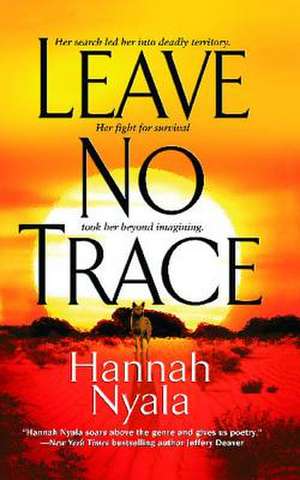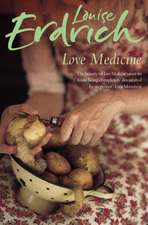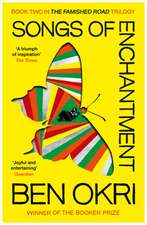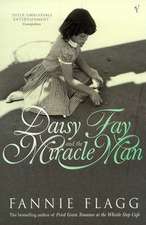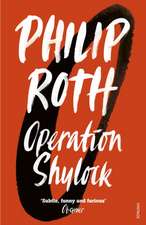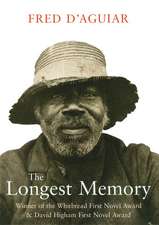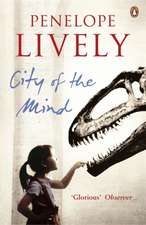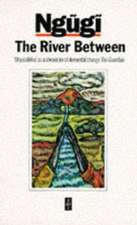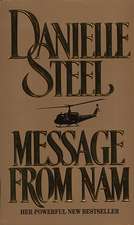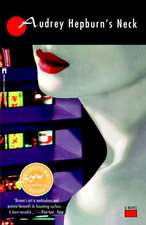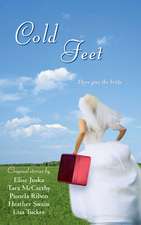Leave No Trace
Autor Hannah Nyalaen Limba Engleză Paperback – 3 feb 2012
Latitude: 19
Date: December 7
Temp: 121 Fahrenheit, 10 A.M.
Paul's been gone now for eight days. He was only supposed to be gone for the afternoon, off to the airport to pick up Josie. But he didn't come back. They didn't come back. Not that day. Not in the seven that came after. And now I'm quickly running out of food and water. I must leave our camp.
I must find them. I must survive...."
Serch-and-rescue is Tally Nowata's profession -- and her passion. But now she's out of her element, half a world away from Wyoming's Grand Tetons, stranded, alone, in Australia's Tanami desert. She's hunting for those she loves -- and running from those who want to kill her....
Real-life tracker Hannah Nyala, author of the acclaimed memoir "Point Last Seen, " introduces a compelling heroine pitted against nature -- and the darkest criminal element -- in the ultimate fight for survival. A suspense-charged novel of courage and hope, "Leave No Trace" will leave you breathless.
Preț: 144.99 lei
Nou
27.74€ • 29.67$ • 23.13£
Carte disponibilă
Livrare economică 27 martie-10 aprilie
Specificații
ISBN-10: 1451685602
Pagini: 400
Dimensiuni: 127 x 203 x 25 mm
Greutate: 0.41 kg
Editura: Gallery Books
Colecția Gallery Books
Extras
I worked my first search for the National Park Service the day I turned nineteen, and found my first dead body three days later.
Her name was Loren Blair, young and athletic and as good on a mountain as anybody ever gets -- a first-rate climber in a class of her own -- but she wasn't climbing the day she disappeared. She was simply out for her morning run, tall and blond and beautiful as always, looking more like a model than a nature rat, when she stepped off the trail, slipped, and fell to her death. Five days passed before anyone even reported her missing. I didn't get to her till two weeks later, far too late to do anything but call in the 11-44 and bag the body for transport and try desperately not to throw up in the process. Loren no longer looked like a model or a climber. She belonged to the dead, not the living. Nothing and no one could bring her back. This is the bitter edge of the work I do. The smell of death never lets up.
The next day the Chief Ranger made me a permanent part of the Windy Point Search and Rescue Team, and since then I've been stationed in the Grand Tetons, mountains that draw plenty of people who are a lot less prepared and fit than Loren Blair was. I've been trained to rescue these people, dead or alive, clothed or not, in all kinds of situations and all kinds of weather. I can rappel off a rock face carrying a grown man and do a solo rope rescue without backup, if needed. I can ski an injured climber off a pass in a blizzard and control the descent. I have been well trained to do these things.
But I have not yet been trained to deal with myself at the smell of a three-week-old corpse. They can't train you for something like that.
And I certainly wasn't trained for this.
Nobody can train you to die.
My name is Tally Nowata and this morning, for the first time since I was ten, I remember my dreams.
I dreamed of rain and then of dying and then of rain again and woke in a cold blind sweat, reaching for my half-finished net like a drowning person lunges for a line except my net was on hot sand instead of water. Red desert sand that hasn't seen rain in at least a year to boot -- which puts the lie to the wet part of my dream and punches the death part home. Hard.
It's the bird, the songbird, that brought me to this, not the situation, not the sand, not the fear, not even the raging hunger. It's just the bird. My very own personal last straw.
Two months ago I wouldn't have eaten a songbird to save my life. Today I did exactly that. Stranded in a strange desert 10,000 miles from home, starving, alone, and beginning to come unraveled at my seams, and still, the worst of it is having to eat bird.
"When you get down to the end of your rope, tie a knot in it and hang on," Grandmother Nowata used to say. She never said what to do with the nausea that comes with hanging onto your own rope that tight. Or what you're supposed to do if you discover your neck in the noose. Pray for double joints from the waist up and squirm free if you can, I suppose. That is Oklahoma's answer for anything a gun won't solve.
Never was much for a gun. Ropes are more to my liking, but a rope here would be overkill. The best tool I have for this job is a hank of flimsy hemp twine, and its rough edges did a number on my fingers this morning. Every knot I tied in my homemade net left its mark on me, but I squared them off anyway, four by four out from the middle until it was the size of a small tablecloth. My hands are still raw and shaking and look like they belong on somebody else -- one of the dead tourists we pulled off the Skillet Glacier last year maybe. Minus the bloated pallor, mine look just like theirs did when we zipped them into the body bags: blue-gray, chapped, and battered from the struggle to survive.
On the carryout, Jed quipped that if only they'd prepared their minds for the backcountry as well as they had their fancy, color-coordinated, Goretex-studded gear, we might not be having to tote them and it out.
"Any man who can say tote and hold up his end of a litter at the same time might be worth keeping around," I muttered, easing my way down a section of scree while trying to keep my side of the litter stable, and Jed shot me the bird with his eyes and almost tripped in the process.
"People pick some of the most inconvenient places to die, don't they?" Jed grumbled, regaining his feet and making do with a gloved finger my direction. I grinned and winked at him. Jed's been my best friend, colleague, and climbing buddy for nine years. We've shot each other the bird so many times we can do it without moving a muscle, so one of us going to the trouble of raising a finger is like shouting through a bullhorn. (And winking back is the rough equivalent of poking the bullhorn inside his eardrum and hollering at the top of my lungs.) I could feel Pony Sutton grinning at the back of our heads. The Windy Point Search and Rescue crew has been together so long now we know each other's every last quirk. That is handy for the kind of work a SAR team does: total equality, total comprehension means we don't have to waste words unless we just want to. Jed shook his head. He could feel Pony's grin on us too.
Laney Greer piped up from the head of the second litter. "Bet the jackets these blokes're wearing cost $500 apiece. Pay my rent and part of the super's with that kind of dough. And just look at all the good it didn't do them."
We got quiet then, the way you do on a carryout sometimes -- not tense, just focusing on the job, no longer able to leave issues of mortality to someone else.
Pony broke it up. "New gear's a dead giveaway, Lanes," she deadpanned, and we all groaned at her bad pun, then laughed not just because it was true but because every last one of us needed a break from knowing what we were toting right then.
It's a fact. People who pitch up in the wilderness sporting the latest outdoor fashions are a SAR team's surest customers and biggest nightmares. We used to bet on how fast it would take them to need rescuing after they left the visitor center at Moose and how big the callout would be for each one. Ten dollars a head for every SAR crew member called in to work the gig; two for every body put on standby. Since a big search can sometimes have more than a hundred people on the ground and that many more packed and ready to show up, our bets got lucrative fast. I paid for a two-week vacation in Yosemite that way one time, and the rest of the crew groused about it for three years in a row, but that didn't stop us betting on the tourists.
Paul once said it was arrogant the way we did that. "Save people's lives and bust your sides laughin' at 'em all the way home." When Paul is annoyed, the Louisiana bayou baptizes every word.
I tried to explain it -- how if you don't laugh when you're scraping somebody's body off the rocks and hauling it down the mountain you'll go right round the bend in your own head -- but couldn't, so finally agreed, "Hell yep, it's arrogant. Got a right. Let me tell you one thing for sure, O'Malley, one thing for damn certain. You ever see me needing the services of a SAR team, you can count on it -- bet the farm you don't own and your next girlfriend's pretty blue eyes too -- it'll be a cold day in hell proper. Very cold, like switching that brimstone for this blizzard, poof!"
"As if one little Indian girl could change the whole ecosystem of hell," he drawled, and I retorted that if you spend enough time anyplace you eventually get around to working on the decor.
"And please don't call me Indian because I am only half." This has always been a sticking point with us. Paul puts more stock in ethnicity than I do. He can afford to. He's Cajun and Irish. I am something a good deal more complicated.
So here it is. Midsummer in the Tanami Desert of central Australia and hell gone twenty below zero. Paul has disappeared and I am alone, have been for fourteen days, eight of them without food. Hence the plan to trap that lonesome little bird. Necessity is the mother of everything.
He started whistling from his favorite perch just inside the supply tent at dawn. I heard, tried not to, and kept layering in the knots. Soon the blistering summer sun ricocheted off the sand and parched every single inch of my exposed skin. At 11:00 A.M., the ground thermometer hit 124 degrees Fahrenheit. I tried to ignore it, kept working.
Around noon, I finished the net and stood up, startling the songster into leaving -- by the exact same route he always used, I noted, with a certain amount of grim satisfaction. It's our loyalty to routines that makes us most vulnerable to predators. Balancing on two metal crates, I stretched the snare across his flyway, lightly hooking the middle and one corner between the tent frame and canvas, and stepped down trailing a long piece of twine. Then I crawled back up and readjusted it four more times before I was satisfied it was ready -- in theory. There was nothing else to do but wait.
The pores on my sunburned neck seeped sweat, I could feel it rise, but the hot winds off the spinifex plains sucked the salty mist away before it even broke the surface. Heat shimmers rose and wavered. Tussocks of yellow spiny bushes marched endlessly to a lost point where this aching empty land finally meets the endless sky. My skin was taut and tired, stretched over my bones like a dirty piece of old cellophane, my long hair heavy with grit, my throat scoured by dust and thirst. My stomach bucked and kicked every few minutes from hunger pangs or the knowledge of my situation or both. Breathing hurt.
Red sand stretched like an ocean every direction as far as I could've seen had I been staring at it instead of the net, waiting for the bird to reappear. Clumps of acacia and other trees whose names I neither know nor care to dotted the swelling sand, struggling to recover from the bushfires that swept through last season, hardy shoots of pale green poking out through hectares of charred stubs and roots. A few mulgas, so dry their leaves looked silver, hugged the drainage near the waterhole. Fire does the spring cleaning here. It's the desert's housewife, more interested in culture than ecology.
But I wasn't looking at the scenery or paying much attention to the Tanami's living arrangements this morning. I've spent too much of the last couple weeks doing just that. The view never varies. Nor do the facts. I'm still stranded over 300 kilometers from the nearest human settlement and it's still gone twenty below blessed zero in hell. Half-breed Okie lost in the heart of a continent that's losing its ozone -- now there's a bit of cultural data for you. It's easier to get skin cancer here than anywhere else on the planet today. As if I didn't have enough to worry about already.
Worse yet, none of my skills as a wilderness ranger back home in the Tetons make one whit of a difference here. It doesn't matter that I'm an experienced climber with peaks like Denali and Rainier scratched off my Must Climb Before I Die list. Doesn't matter that I know how to dig a snow trench with skis and wait out a blizzard in relative comfort. Build a warm fire out of wet wood, spot an avalanche slope and grizzly spoor. Rig a Tyrolean traverse and guide a loaded litter to the ground on it. Doesn't matter that I've worked with a SAR team in the Rocky Mountains for eight years, helping to save the lives of 47 tourists who got themselves lost or injured in the backcountry. Or helped schlep out the bodies of a slim dozen more who didn't survive despite my crew's best efforts. Doesn't matter that I've stood at the feet of way too many three-week-old corpses, preparing the body for transport and reeling from that terrible smell. Doesn't matter. None of it matters here, and that makes me sick to the stomach. Literally.
Anyway, enough of that. The bird finally returned. The trigger loop of twine sat limp in my fingers. I waited, nervous, sure he'd see the line snaking its way from the saggy tent above his head down to this woman below and depart by the back way on principle if nothing else. I could see it in living color, him somersaulting backward off the perch, neatly avoiding my trap, doing some solo avian version of a Flying Garibaldi move, way out of reach or need of a net.
But he didn't. He just sat there, trusting and simple, surveying his little world, scratching his head. I wanted to leave and started to. He opened his beak to sing me off, in a routine we've pretty much perfected over the last month, and somehow, accidentally, I yanked the line. Tripped over it, I believe.
Then I simply stood there, trapped as a deer in headlights, shocked that my hairbrained plan had actually worked, not knowing quite what to do next. I've never killed an animal before, not even for food. None of my years of training are worth one red hill of beans here. Working search and rescue has nothing whatsoever to do with this level of survival.
Park rangers, it hit me dead center, as the bird struggled against the coarse mesh, fluttering and chirring in terror, are just as mortal as any tourist on the planet. Skills be damned.
Especially if they're the wrong ones.
When that thought landed on the warm feel of the suddenly limp, feathered body in my hands, I pitched forward, heaving, crying, and the fingers that just wrung the tiny neck went numb and clutched at my stomach. The songbird, still secure in the knotted twine, tumbled to the sand and lay still, quiet at last.
Last straw. I, Tally Nowata, smell death. Again.
Only this time it is my own.
Copyright © 2002 by Hannah Nyala
